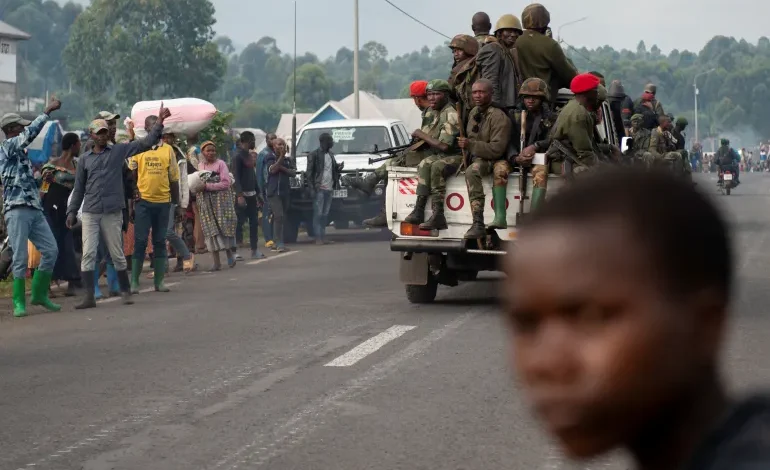ICRC Begins Evacuation of Disarmed DR Congo Troops from M23-Controlled Zone Amid Shifting Peace Dynamics

The International Committee of the Red Cross (ICRC) has launched a humanitarian operation to evacuate hundreds of disarmed Democratic Republic of Congo (DRC) troops and police personnel, along with their families, from the volatile eastern city of Goma to the capital, Kinshasa.
In a statement released Wednesday, the ICRC confirmed it had begun facilitating the transfer of these individuals, who had sought refuge at a United Nations Organization Stabilization Mission in the Democratic Republic of the Congo (MONUSCO) base following intense clashes with M23 rebel forces in North Kivu province.
The operation, which is expected to unfold over several days, follows complex and prolonged negotiations between the Congolese government, the United Nations, M23 representatives, and humanitarian agencies. The evacuees had been effectively stranded in Goma, disarmed and vulnerable, after fleeing advancing rebel positions.
Upon arrival in Kinshasa, Congolese authorities are expected to assume full responsibility for the soldiers, police officers, and their family members.
“The ICRC is acting in its neutral and impartial humanitarian role to ensure the safe and dignified movement of these individuals, in accordance with international humanitarian law,” said an ICRC spokesperson. “This evacuation underscores the urgent need for durable political solutions and protection for civilians and former combatants alike.”
The evacuation takes place against a backdrop of growing insecurity in eastern DRC, where the M23 rebellion has gained significant ground in recent months, reportedly capturing territory close to Goma, a key strategic and economic hub near the Rwandan border.
Meanwhile, regional peacekeeping dynamics are undergoing major transitions. On Tuesday, the first contingent of the Southern African Development Community (SADC) military mission began withdrawing from eastern Congo via Rwanda, as part of a phased drawdown. The departure follows the DRC government’s announcement that it would not renew the mission’s mandate beyond its expiration.
The SADC troops were deployed in late 2023 to bolster efforts against armed groups operating in the region, particularly as MONUSCO itself prepares for a complete withdrawal by the end of 2024, after two decades in the country.
Analysts warn that the overlapping exits of international peacekeeping forces and continued offensives by rebel groups like M23 risk creating a power vacuum, potentially leaving millions of civilians exposed to violence and displacement.
The eastern DRC has been plagued by decades of armed conflict, fueled by ethnic rivalries, competition over natural resources, and cross-border interference.
The resurgence of M23, a rebel movement largely composed of Congolese Tutsi fighters, has triggered a new wave of displacement, with more than 7 million people currently uprooted across the country — the highest number globally, according to the UN.
M23 claims to be defending the rights of ethnic Tutsis in Congo but is widely accused of committing atrocities against civilians. The group’s ties to neighboring Rwanda remain a subject of international contention, with Kinshasa repeatedly accusing Kigali of supporting the rebels — a charge Rwanda denies.
As the ICRC works to relocate the disarmed security personnel, human rights groups are calling for renewed international attention and diplomatic pressure to stabilize the region and protect vulnerable populations.





